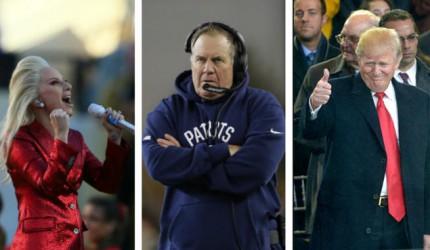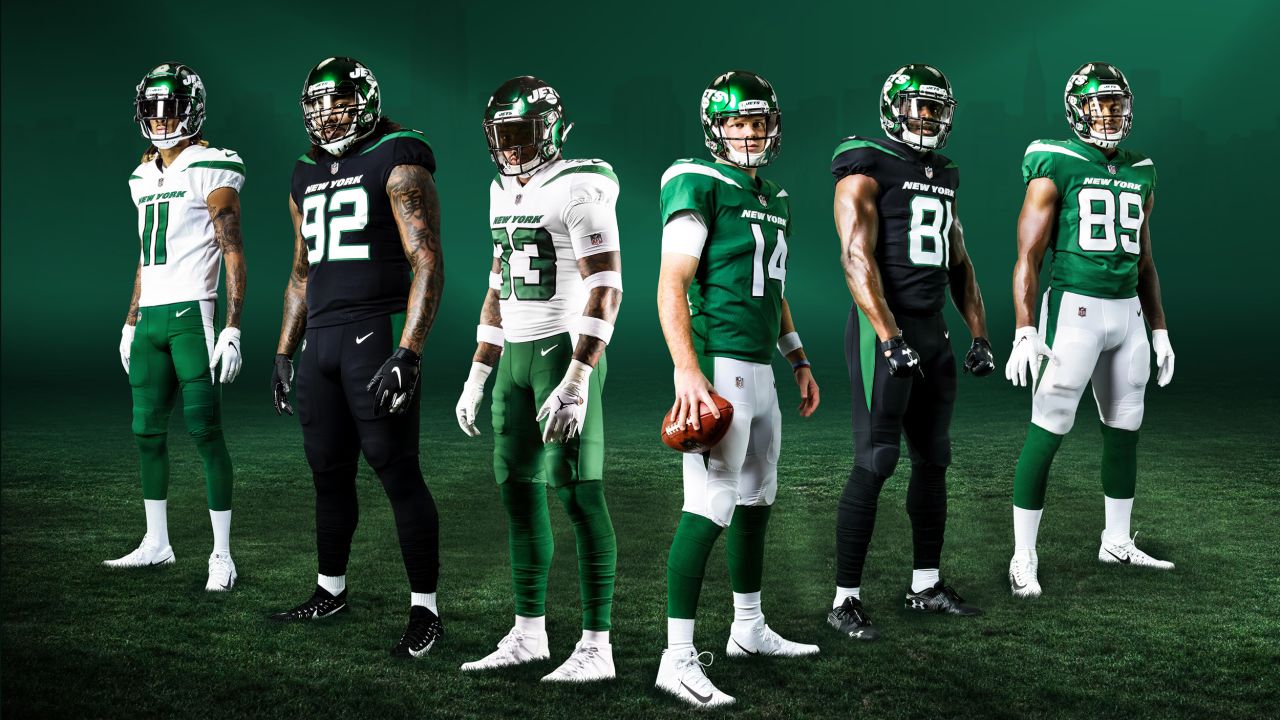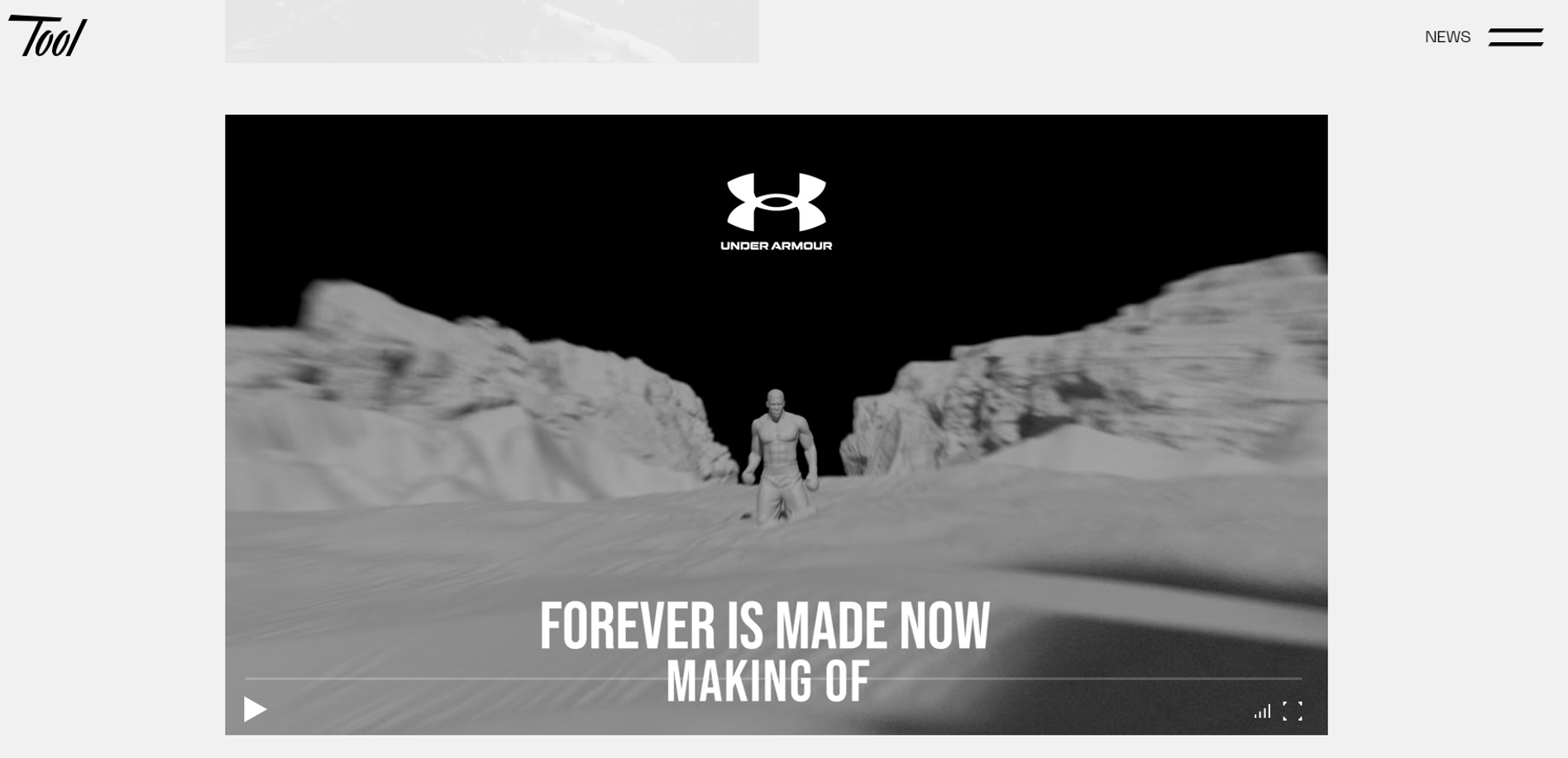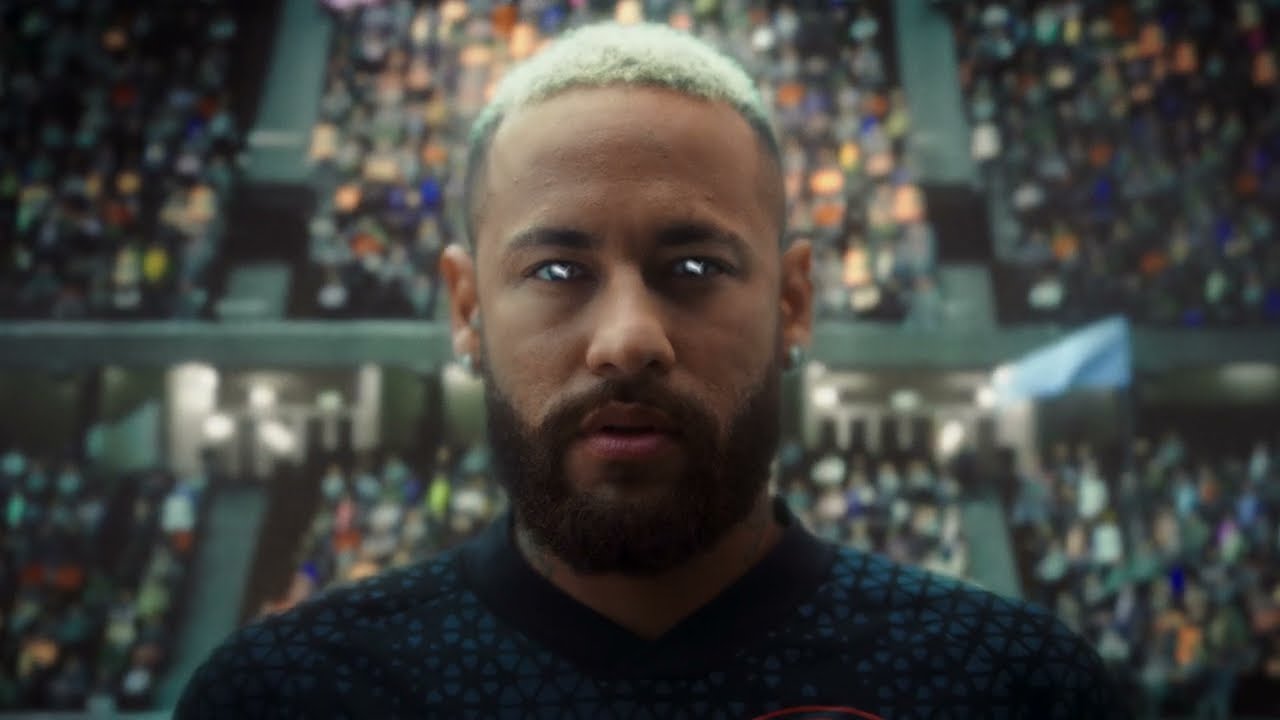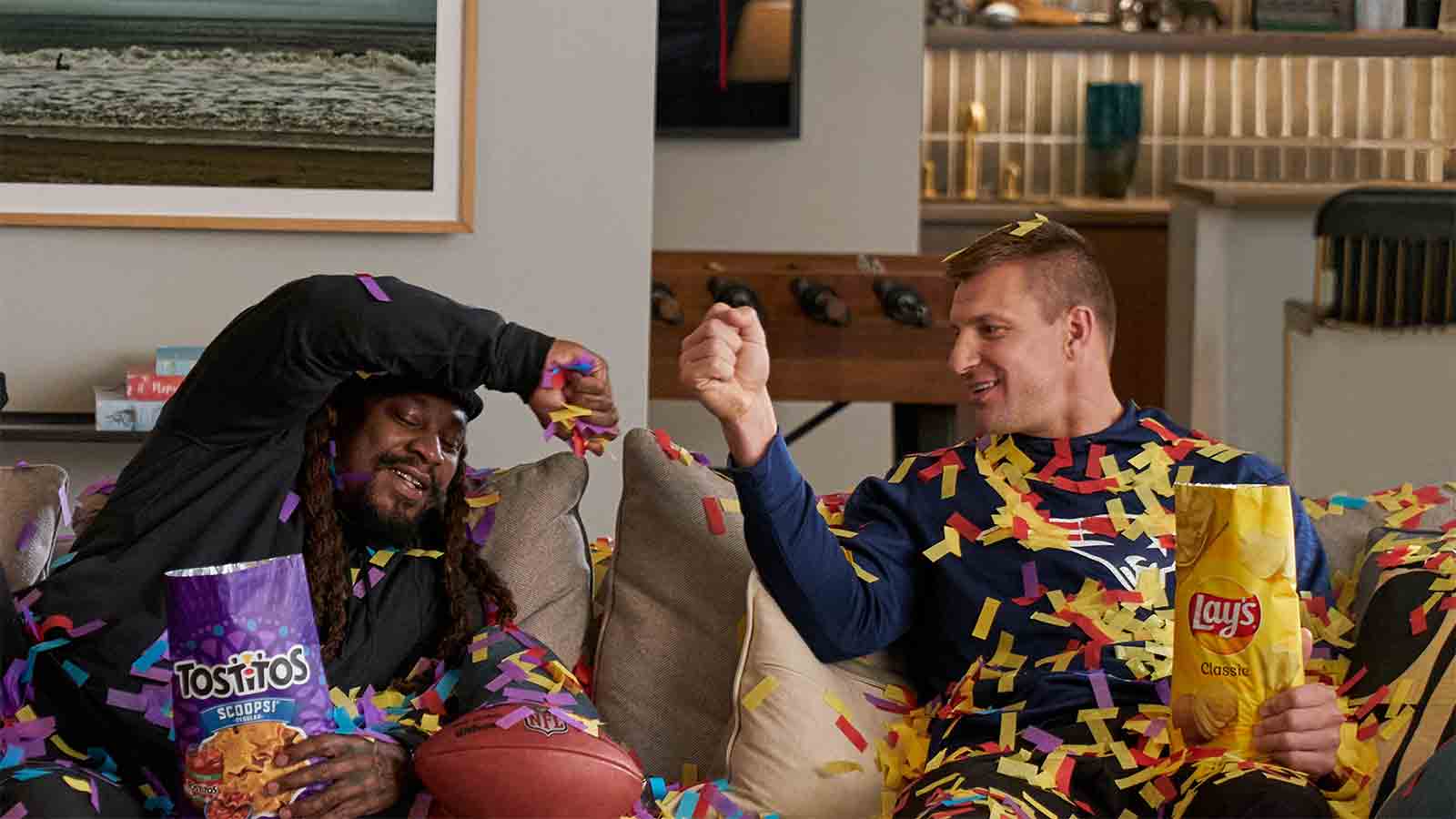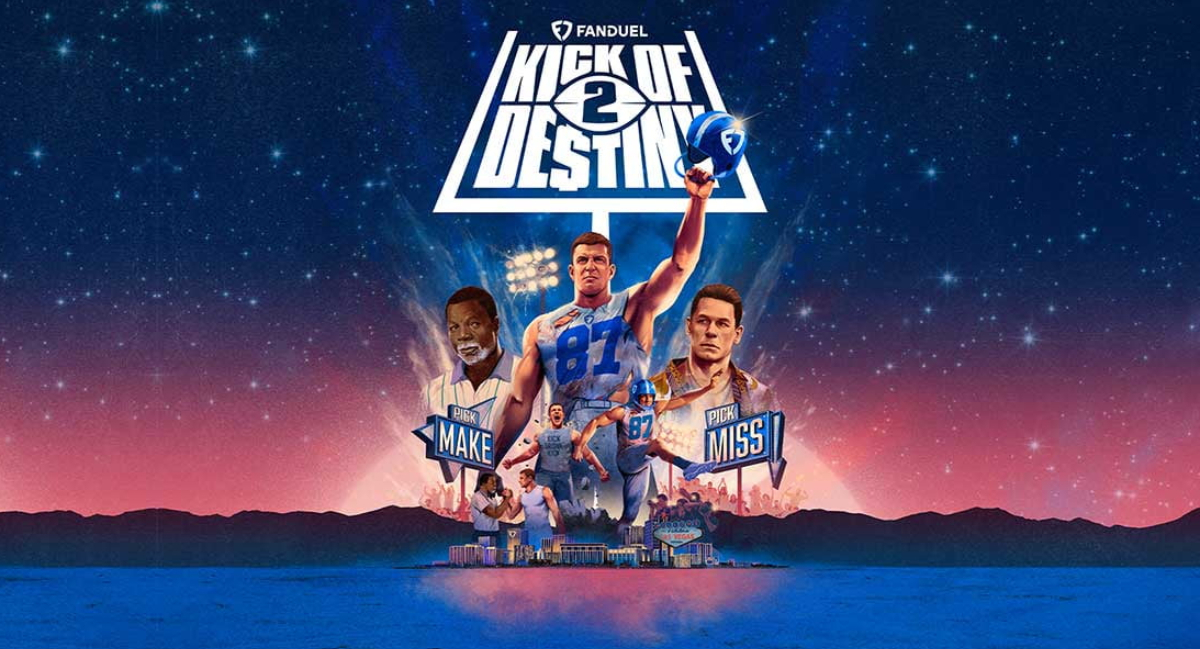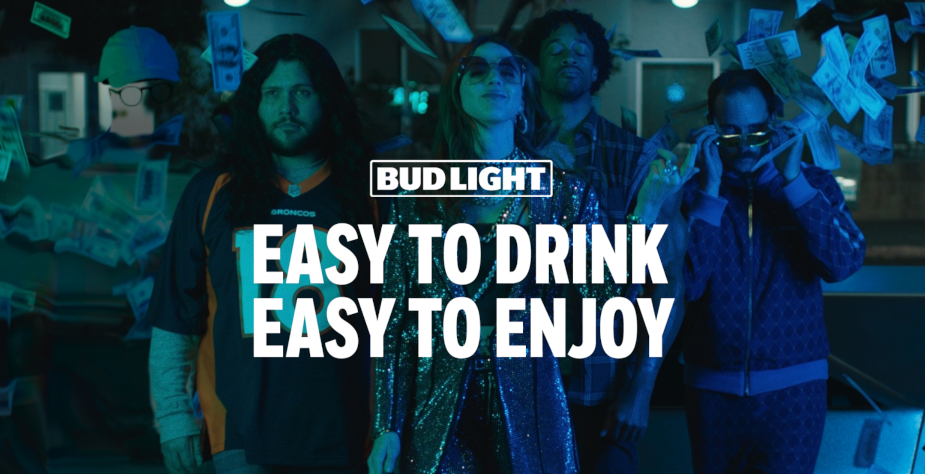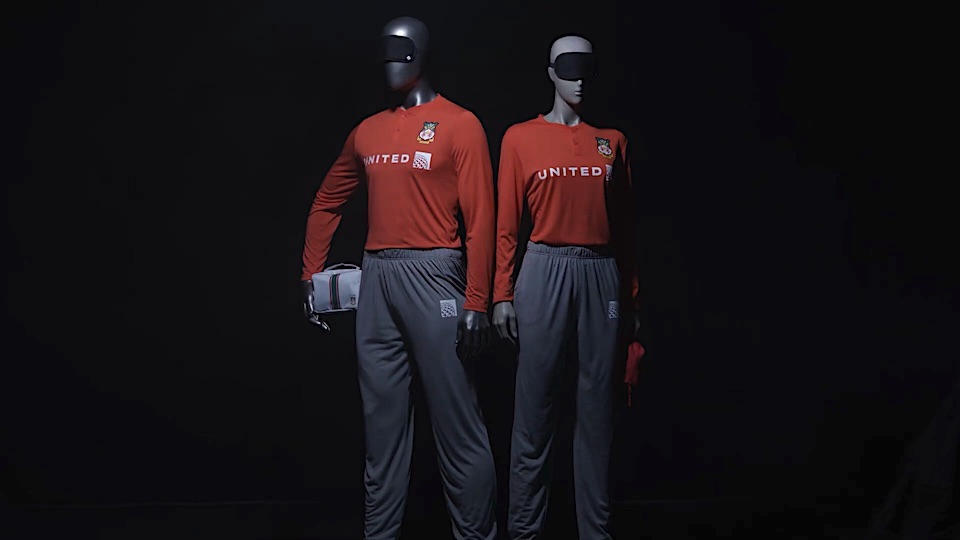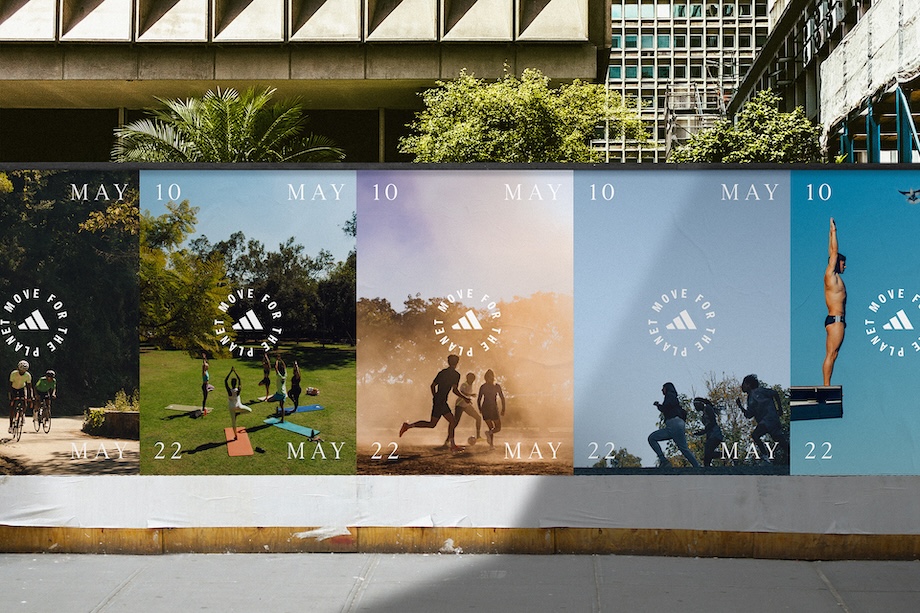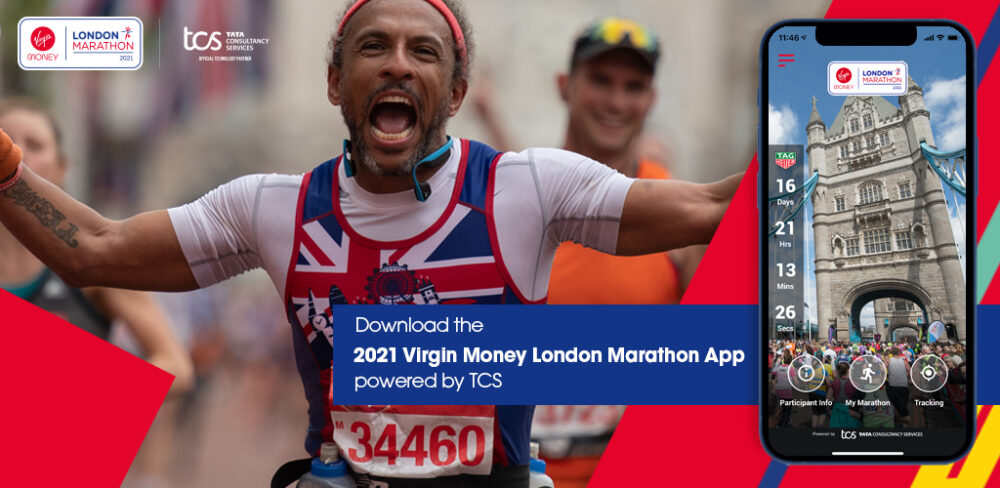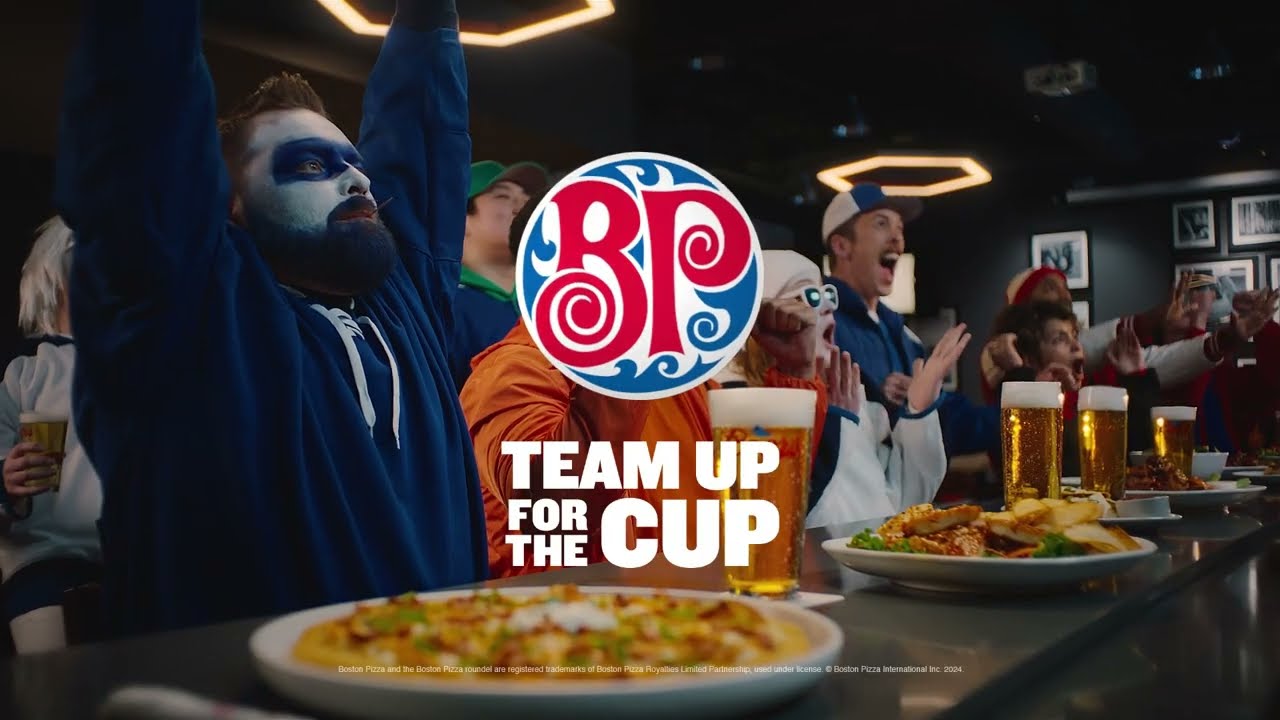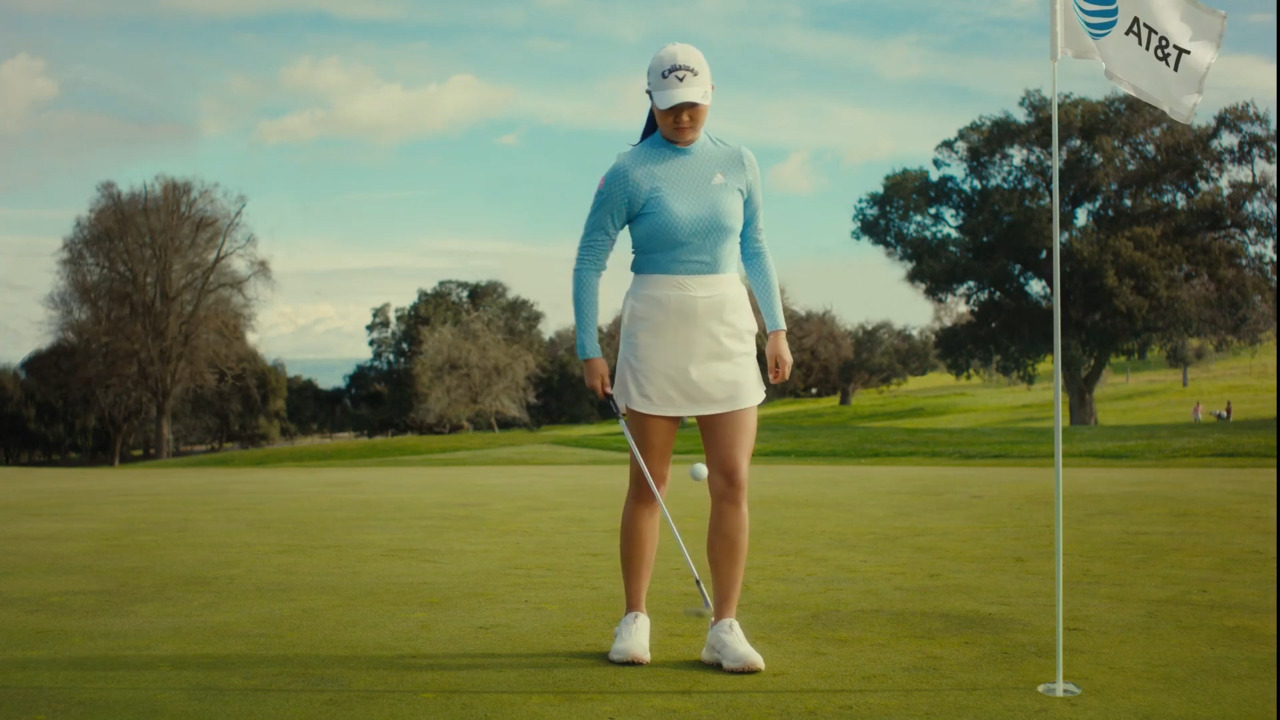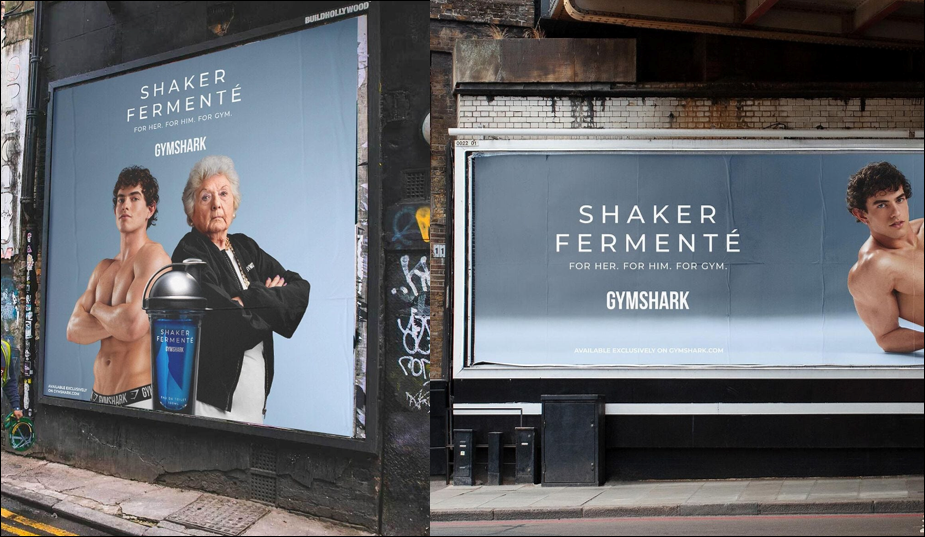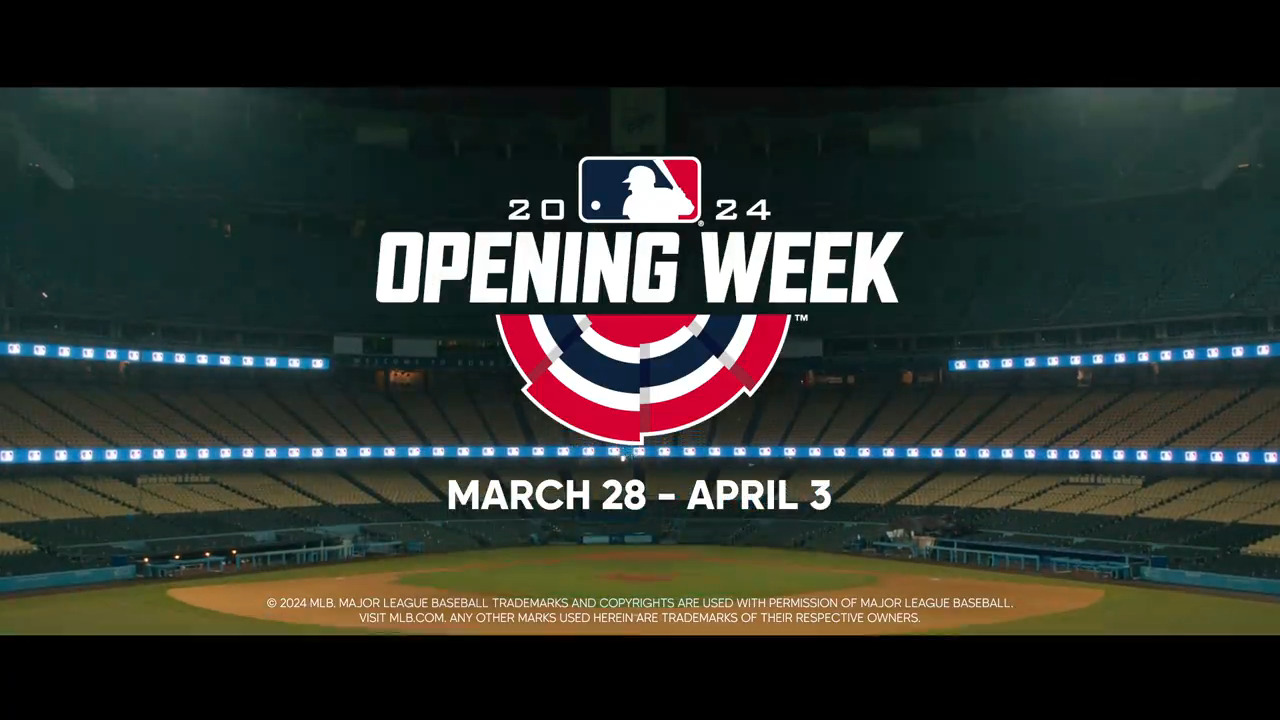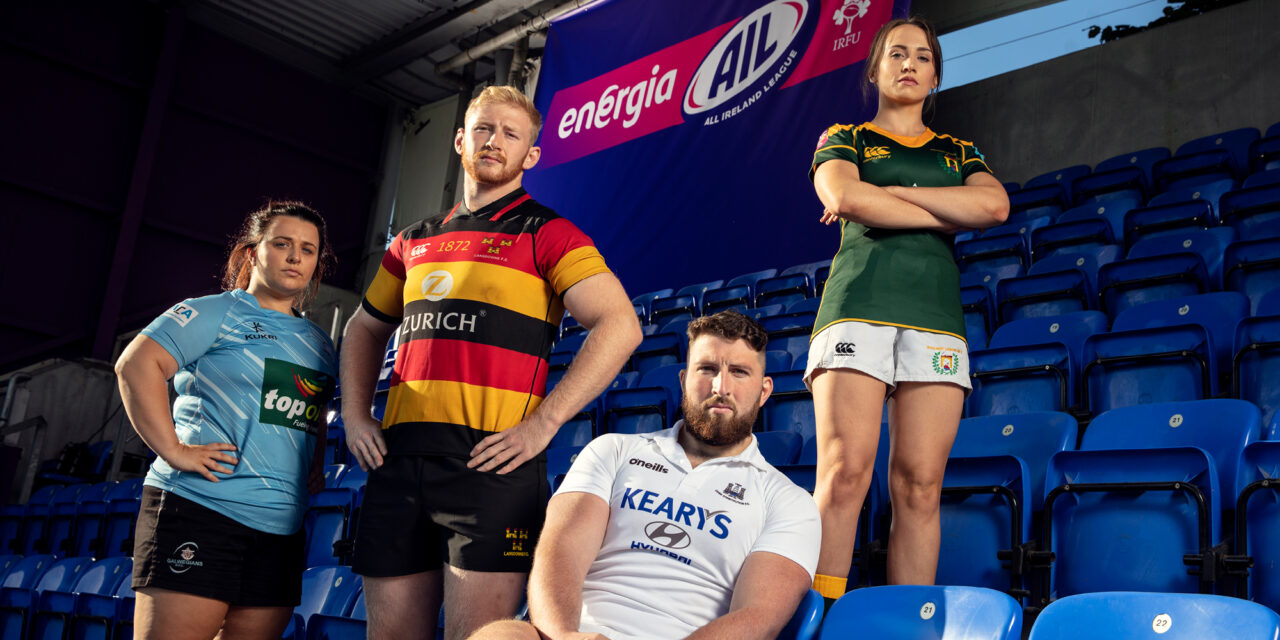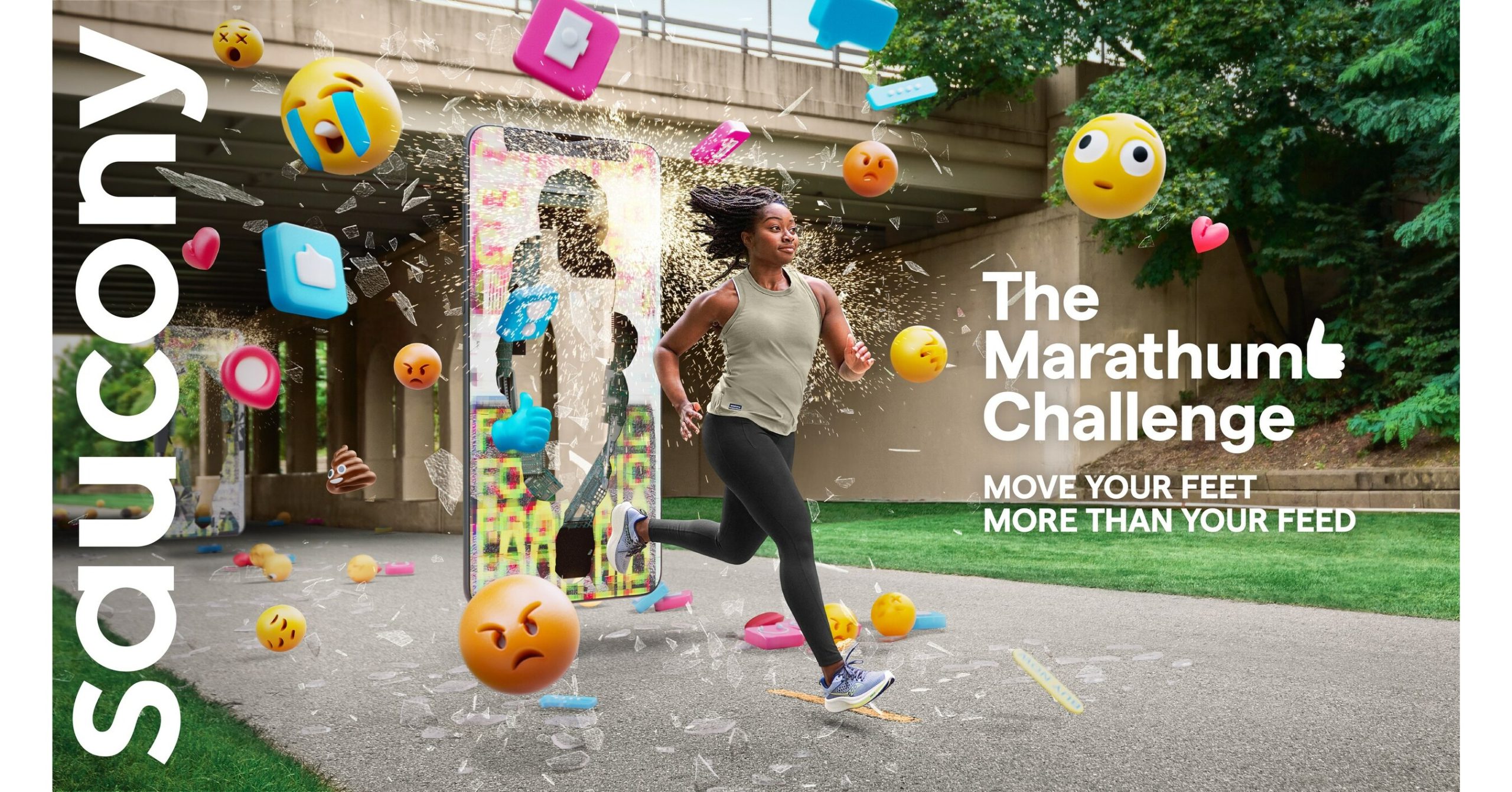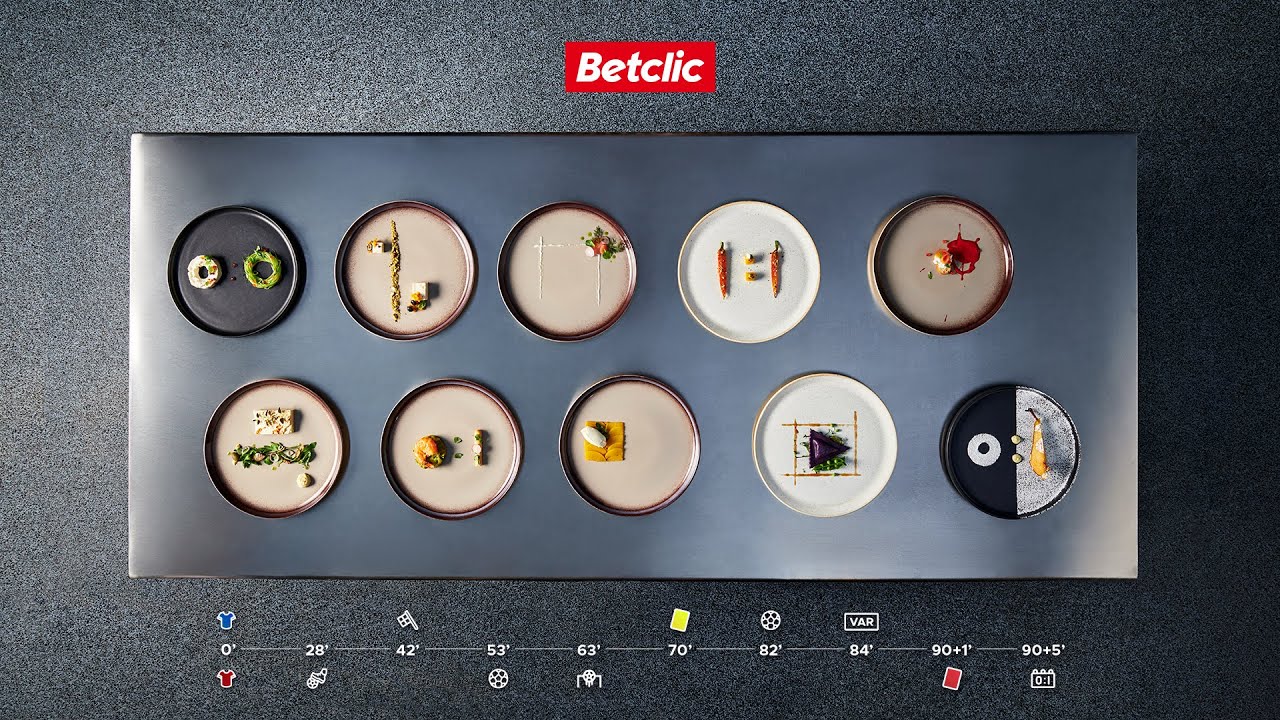Can any brand avoid being drawn into the Trump-dominated American political maelstrom?
With the population split in two, can companies avoid taking sides? Sunday’s Super Bowl sure saw several big brands make powerful statements.
The Big Game’s intense media coverage and viewer scrutiny, coupled with its huge TV audience (the same size as the number who voted in the election) who tune in to see the ads as much as the action drew even the most politically reluctant brands into the political debate: including 84 Lumber, AirBnB, Audi, Budweiser and even Its A 10 Hair.
It is clearly risky to enter the political turmoil.
hen again, it might turn out to be risky not to. Perhaps brands no longer have a choice?
The most overt, serious spot was the (banned) immigrants story spot from building supplier 84 Lumber: the fact that Fox banned its full spot for being too controversial inevitably increased attention around the ad and helped drive huge numbers from its re-cut Big Game version to the full ‘The Entire Journey’ film online (see case study).
Budweiser may claim that its own epic pro-immigration ad is not a political piece but simply a brand origin story planned and shot months ago, but Super Bowl viewers won’t buy that for a second – make no bones about it, this commercial is political (see case study).
While Audi of America is entering the fray on the topic of gender equality with a powerful Big Game ad about equal pay (see case study) – another brand commercial comment on a controversial debate whirling around Trump.
Equality and acceptance were also the themes of AirBnB’s ‘We Accept’ ad (a campaign created from a mix of old and new footage in just one week after the company’s founders and employees were motivated to make a statement after Trump’s travel ban and found that there was still Super Bowl ad space available just a week before the game)
and the same themes feature in the re-aired Coca-Cola #AmericaIsBeautiful spot – which first debuted during the 2014 Super Bowl (see case study)
While health and beauty brand ‘Its A 10 Hair’ took a fresh, fun comic approach to its Trump-mocking ‘Four Years’ commercial (see case study).
On the flip side, there is the more pro-Trump approach of WeatherTech’s ‘Made In America By Americans’ approach (see case study).
Not all brands that seem to be keen to dive head first into the political divide during the Super Bowl, but even those brand’s with Super Bowl spots that assiduously avoid taking sides or directly/indirectly tackling any contemporary political issues, had thier the real-time digital and social teams quaking in their boots on game day fearing they would get drawn into the debate one way or another.
There are plenty of Big Game advertisers out there that seem likely to get tied into Trump’s turbulence one way or another – think ‘Avocados From Mexico’.
The danger of Trump’s own Twitter barrage, social media scorn from his followers or backlash from the huge anti-Trump protest movement has even changed Super Bowl advertiser tactics.
Many Madison Avenue advertisers to board room marketers are shying away from pre-game Super Bowl advertising, believing that the country’s firebrand politics will distract attention away from expensive Super Bowl spots and their associated teasers and pre-game clips.
By the end of January, only 21 Super Bowl advertisers had released a combined total of 39 ads or teasers, compared to last year’s 33 brands and 59 ad executions (according to iSpot.tv).
Beyond and before the Super Bowl, some brands have pro-actively jumped into America’s political turmoil and are running initiativesor even campaigns to do something about it (like AirBnB, Amazon, Apple, Google and Dove),
.@Dove presents its own #AlternativeFacts in ballsy print ad from @Ogilvy https://t.co/FpUqpVCjN5 @ThamKhaiMeng pic.twitter.com/YbuA4iLhWc
— Campaign US (@CampaignLiveUS) January 28, 2017
while others have more reservedly offered a simple statements clarifying their values and corporate positions (like Ford and Nike, not to mention WPP, IPG and Omnicom).
Others still have seem to have been forcibly dragged into the debate by events (and by both sides).
Take Uber for example. The New York Taxi Union’s support for the JFK airport demonstration caused Uber’s algorithmic-initiated surge pricing which in turn led to a #DeleteUber campaign from the protesters (plus it doesn’t help that Uber CEO Travis Kalanick sits on Trump’s business advisory council ).
#deleteuber pic.twitter.com/EI8kC9fHX6
— Nubz Media (@nubz_media) February 2, 2017
On the flip side, following Starbucks’ promise to hire 10,000 refugees in response to Trump’s immigration ban, the hashtag #BoycottStarbucks jumped on to Twitter’s list of top trends boosted by messages from Trump supporters.
#BoycottStarbucks and buy Black Rifle Coffee! Veteran owned, and plans on hiring 10,000 more Veterans https://t.co/VRchLwJgOU pic.twitter.com/TzGC8Q50zR
— thevortexFxT (@thevortexFxT) February 2, 2017
Some brands have regretted their decision to enter the debate months ago: whether light-heartedly (like Hawkers) or seriously (like New Balance).
Consider the post-election piece of social media sponsorship suicide committed by sunglasses brand Hawkers when it’s Mexican Wall tweet lead to howls of protest and the resignation of its F1 athlete ambassador Sergio Perez (see case study).
Or the burning sneaker backlash that followed New Balance’s post-election pro-Trump, anti NAFTA and anti Trans-Pacific Partnership tweet (see case study).
Whether you are standing on principal and actively entering the debate, or whether you are trying to stay clear of controversy and conflict, marketers be warned.
You may get sucked into the uproar anyway – so be prepared, be ready, be relevant and be authentic and true to your long term principals and values (not short-term reactive or tactically exploitative).
In the past some brands have met the challenge with Super Bowl spots that focus on what unites us rather than what divides us.
Coca-Cola’s Big Game ad in 2008, for example, featured Democratic guru James Carville and former Republican senator Bill Frist arguing and then eventually bonding over a Coke.
Perhaps Super Bowl sponsors and advertisers could consider this kind of approach to togetherness and national unity – after all, we have seen some powerful examples of this kind of commercial in recent weeks from the likes of Amazon and its ‘Priest and Imam’ festive ad,
and TV2 Danmark’s brilliant ‘All that We Share’ spot.
Mind you, a quick glance at the YouTube comments section under the TV2 spot shows the frightening and offensive levels of public division which might just mean this kind of approach just doesn’t work in the current climate – however good the ad is.
Trump himself even appeared in a Super Bowl ad a few years back – an ad that saw him outsmarted by a Century 21 agent.
https://www.youtube.com/watch?v=HK5C7I6-b9g
He won’t, of course, didn’t appear in any of this year’s Big Game spots but his shadow loomed large over most of them.

